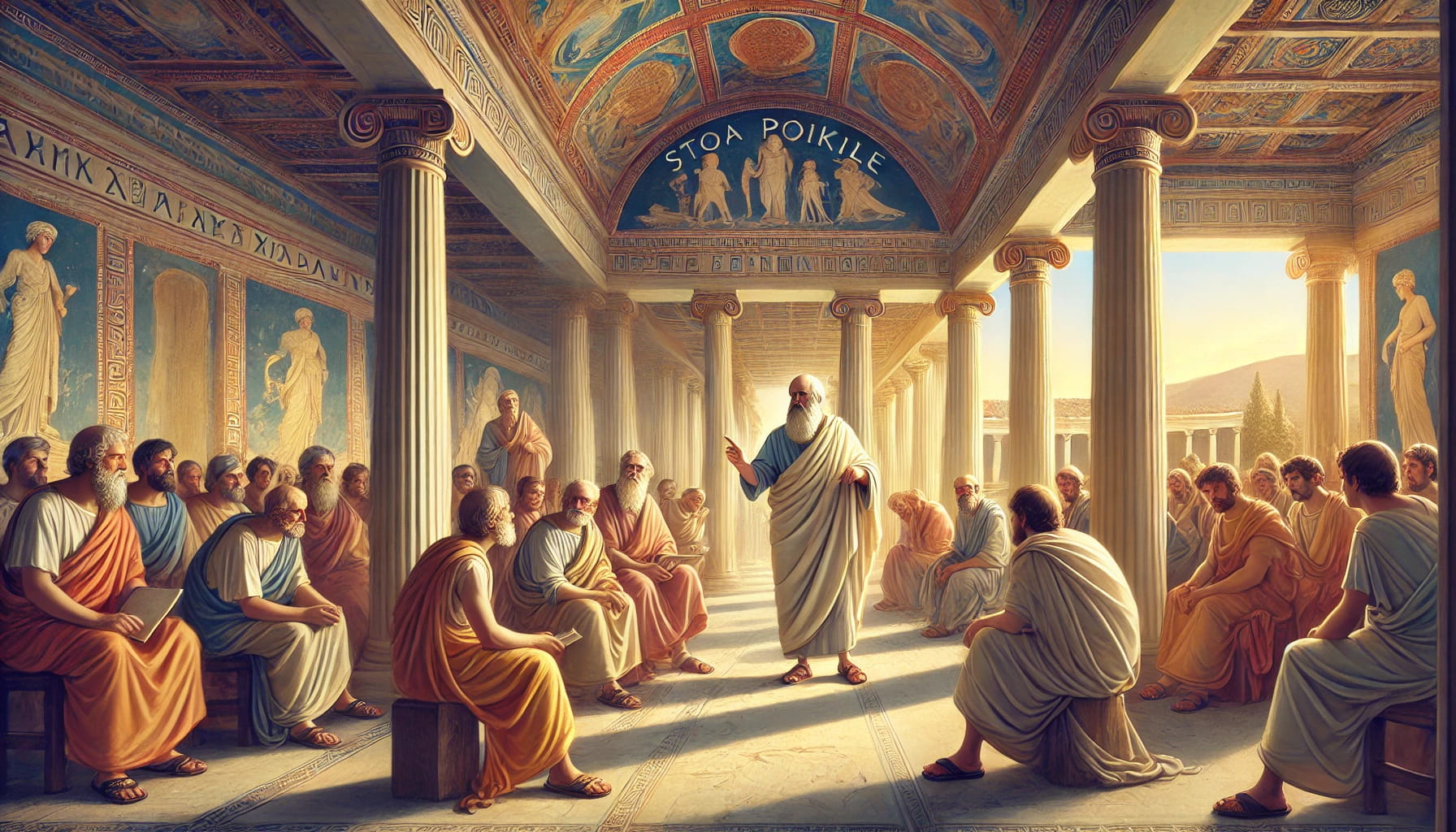When discussing the origins of Stoicism, the name Zeno of Citium stands as a beacon of wisdom and foundational thought. Born around 334 BCE in the Phoenician city of Citium (modern-day Larnaca, Cyprus), Zeno laid the groundwork for one of the most enduring philosophical schools in history. But what does “Stoic” truly mean, and how did Zeno define its core principles? In this article, we’ll explore the essence of Stoicism as envisioned by its founder, highlighting its key ideas and their relevance today.
Zeno and the Birth of Stoicism
Zeno’s journey into philosophy began in an unlikely way. According to ancient accounts, Zeno was a merchant whose shipwreck near Athens brought him into contact with Socratic and Cynic teachings. Fascinated, he immersed himself in philosophy, studying under Crates of Thebes, a prominent Cynic. However, Zeno soon developed his own distinct approach, founding the Stoic school around 300 BCE.
The name “Stoic” derives from the “Stoa Poikile” (Painted Porch), a public colonnade in Athens where Zeno taught. Unlike the secluded academies of other philosophers, Zeno’s choice of the Stoa signified an emphasis on accessibility and practical application, principles central to Stoicism.
The Meaning of Stoicism According to Zeno
At its core, Stoicism is a philosophy of life aimed at achieving eudaimonia, often translated as “flourishing” or “a good life.” For Zeno, the path to this ideal state required living in harmony with nature—both human nature and the greater cosmos. Here are the fundamental principles of Stoicism as shaped by Zeno:
1. Living in Accord with Nature
Zeno believed that nature operates according to a rational order, and humans, as rational beings, should align their lives with this universal reason, or logos. Living in harmony with nature means embracing rationality and virtue as guiding principles, rather than succumbing to base emotions or external distractions.
2. The Four Cardinal Virtues
Central to Zeno’s teachings were the four cardinal virtues:
- Wisdom: The ability to discern what is truly valuable.
- Courage: The strength to face challenges and adversity.
- Justice: Fairness and integrity in our dealings with others.
- Temperance: Self-control and moderation in all things.
For Zeno, these virtues were not just abstract ideals but practical tools for navigating life’s complexities. To be “Stoic” is to embody these virtues in thought and action.
3. Indifference to Externals
One of Zeno’s most revolutionary ideas was the distinction between what is within our control and what is not. He categorized external factors—wealth, fame, health, and even life itself—as “indifferents.” These things are neither good nor bad in themselves but gain value based on how we use them. The key to a Stoic life is focusing on our internal responses rather than external events.
4. Mastery Over Emotions
While Zeno did not advocate suppressing emotions, he emphasized achieving emotional balance. By understanding the nature of our desires and fears, we can train ourselves to respond calmly and rationally to life’s challenges. This emotional resilience is what most people associate with being “Stoic” in modern language.
Why Zeno’s Stoic Meaning Matters Today
In a world dominated by stress, social media, and constant change, Zeno’s Stoicism offers timeless guidance. The principles of focusing on what we can control, cultivating virtue, and living in harmony with nature resonate deeply in the modern context. For instance:
- Stress Management: By recognizing that many stressors are beyond our control, we can avoid unnecessary anxiety.
- Emotional Intelligence: Mastering our emotions allows us to build stronger relationships and make clearer decisions.
- Purposeful Living: Zeno’s emphasis on virtue encourages us to seek meaning and fulfillment in our actions rather than chasing fleeting pleasures.
The Stoic Meaning
The Stoic meaning, as defined by Zeno of Citium, revolves around rational living, virtue, and resilience. By teaching us to focus on what truly matters and align with the natural order of the universe, Zeno’s philosophy provides a framework for navigating life’s challenges with wisdom and grace.
As we reflect on Zeno’s teachings, it becomes clear that Stoicism is not just an ancient school of thought but a practical guide to modern living. In embracing the principles of Stoicism, we can cultivate inner peace and lead a life of purpose, just as Zeno intended over two millennia ago.

